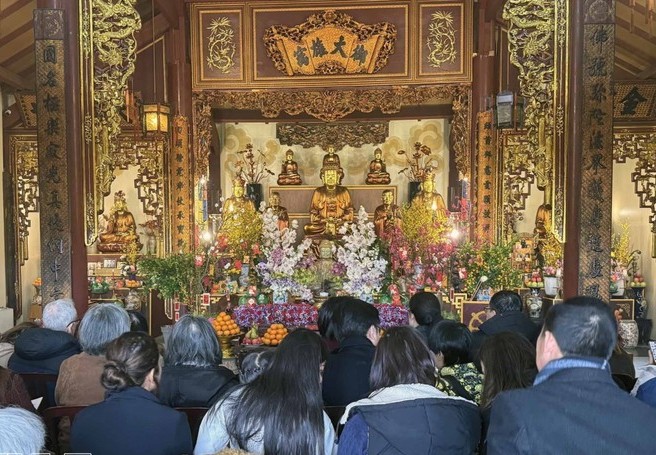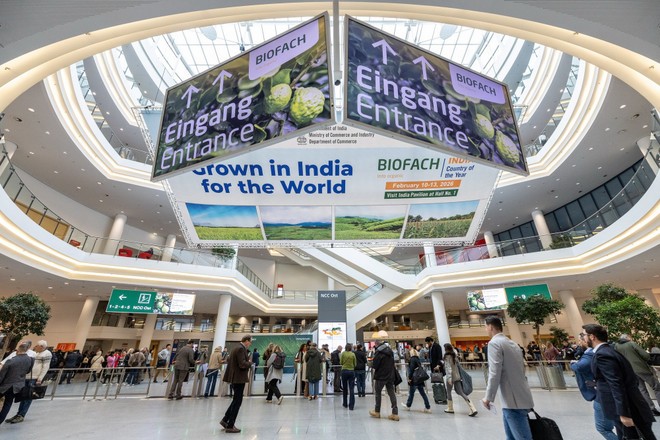Vietnam News Today (Jun. 30): Vietnam-Italy Ties Poised For Strong Growth
| Vietnam News Today (Jun. 27): Vietnam Pledges to Play Active Role in UNESCO’s Global Missions: Party Chief | |
| Vietnam News Today (Jun. 29): PM Calls for Breakthroughs in Vietnam–UK Economic Cooperation |
| Vietnam News Today (Jun. 30) notable headlines Vietnam-Italy ties poised for strong growth Vietnam – a trusted global trade partner and strategic supply chain hub Vietnam underscores enduring values of UN Charter National Geographic spotlights Vietnam as rising star in Asia Public investment disbursement vital to Vietnam’s 2025 growth Newly-established association hoped to boost Vietnam-UK financial ties Lang Son becomes Vietnam’s 4th global geopark PM asks for UNESCO's support in world cultural heritage recognition, conservation Administrative overhaul unlocks tourism sector’s growth |
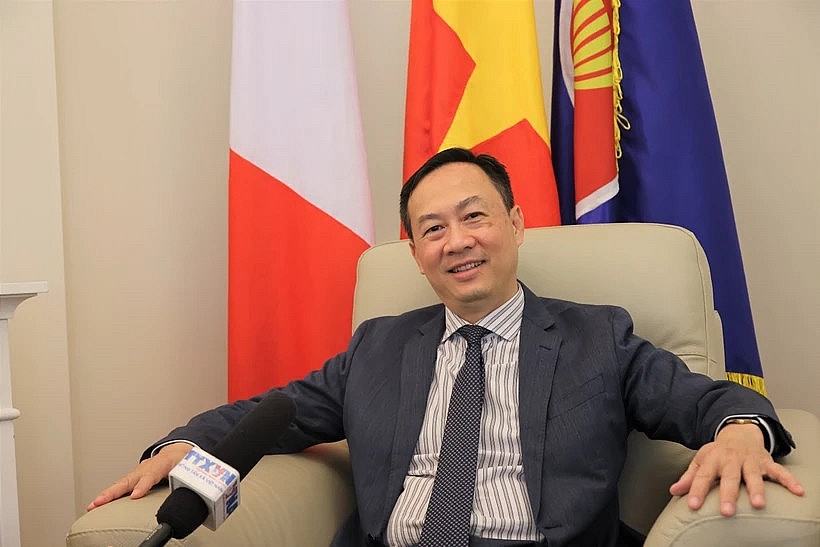 |
| Vietnamese Ambassador to Italy Duong Hai Hung (Photo: VNA) |
Vietnam-Italy ties poised for strong growth
Building on a solid foundation of traditional friendship, economic complementarity, and strong political commitment from both sides, Vietnam-Italy relations are expected to further develop more strongly, practically and comprehensively in the coming time, said Vietnamese Ambassador to Italy Duong Hai Hung.
Speaking to Vietnam News Agency correspondents in Rome ahead of Vice President Vo Thi Anh Xuan’s visit to Italy from June 29 to July 1, the ambassador said that the bilateral relationship is well-positioned to reach a higher level of strategic partnership in the near future.
Hung emphasized the deep historical ties between the two nations. Italy was one of the first European countries to establish diplomatic relations with Vietnam in 1973. Notably, President Ho Chi Minh once stayed in Italy during his quest for national salvation in 1928, and today, 21 streets across Italy bear his name, which underscores the enduring friendship between the two nations.
In 2013, Vietnam and Italy established a strategic partnership, marking a turning point in bilateral relations. A significant milestone was the state visit by the State President of Vietnam to Italy in July 2023 on the occasion of the 50th anniversary of diplomatic ties. The joint statement released during the visit reaffirmed both countries' commitment to enhancing the strategic partnership and further deepening cooperation in a practical and dynamic manner.
The Vietnam-Italy relationship has achieved notable progress in various areas. Political trust has reached a high level, with frequent exchanges of high-level delegations and efforts to increase strategic cohesion.
Economic relations have expanded significantly. In 2024, two-way trade reached 6.9 billion USD, driven by the positive impact of the EU-Vietnam Free Trade Agreement (EVFTA). defense-security ties, locality-to-locality cooperation, and people-to-people exchange have all seen progress, cited VNA.
According to the Vietnamese Ambassador, Vietnam and Italy share immense potential for cooperation in both traditional and emerging areas. Building on their strong strategic framework, the two countries can continue to deepen collaboration in traditional sectors such as trade, defense, education, and science; and new areas such as green transition, circular economy, renewable energy, digital transformation, artificial intelligence, aviation, and space technology.
The two countries also share common views on major international issues. Both support multilateralism, a rules-based international order, and cooperation for peace, stability, and sustainable development. These shared values provide a solid basis for effective coordination in multilateral forums such as the United Nations (UN), Inter-Parliamentary Union (IPU), and Asia-Europe Parliamentary Partnership (ASEP), as well as ASEAN–EU mechanisms. Vietnam stands ready to act as a bridge between Italy and ASEAN.
To elevate bilateral relations to new heights, the ambassador proposed five strategic directions, including strengthening exchanges at all levels, especially high level; identifying key and prioritised contents to boost economic, trade, and investment ties; enhancing defense and security cooperation; boosting cultural, educational and tourism cooperation and people-to-people exchanges; and developing local-level partnerships.
Vietnam – a trusted global trade partner and strategic supply chain hub
Vietnam is asserting itself as one of the world’s most promising and reliable centres for trade and manufacturing.
Backed by robust export performance, strong foreign direct investment (FDI) inflows, and expanding international partnerships, the country is rising as a vital node in global supply chains, particularly in electronics, textiles, agriculture, and high-tech manufacturing.
Impressive trade growth - rising role in global supply chains
In 2023, Vietnam’s total trade turnover reached over US$683 billion, placing the country among the top 20 global trading economies. For 2024, the country’s exports hit US$405.5 billion, marking a 14.3% increase year-over-year, a remarkable performance amid global economic uncertainties.
Vietnam has recorded a trade surplus for nine consecutive years, reflecting the strength and sustainability of its export-led economic model. Products such as smartphones, electronics, computers, garments, and agricultural goods continue to dominate export portfolios.
The country is emerging as a critical production hub in the global electronics and high-tech supply chains. Exports of computers, electronics, and components in 2024 reached US$72.56 billion, a 26.6% increase from 2023. In particular, Vietnam is now the world’s second-largest exporter of smartphones, trailing only China.
These gains not only highlight Vietnam’s manufacturing capabilities but also its ability to deliver high-quality, competitive products on the global market.
Minister of Industry and Trade Nguyen Hong Dien emphasised that Vietnam is “always ready to be a reliable partner in the global supply chain” and is committed to working alongside other partners to build a fair, adaptive, and sustainable trade environment.
Leading global tech giants, including Samsung, Apple, Intel, LG, and Foxconn, have established large-scale operations in Vietnam. Samsung now assembles a significant share of its global smartphones in the country, while Apple’s suppliers are rapidly expanding their footprint in Vietnam to diversify away from China.
This growing presence reflects a broader trend that Vietnam is becoming a key part of multinationals’ strategy seeking alternative manufacturing locations that offer stability, competitive labor costs, and favorable trade access.
Strategic engagement in global trade Agreements
In addition, Vietnam’s proactive participation in a network of new-generation free trade agreements (FTAs) has significantly expanded its market access and reduced trade barriers. These include the Comprehensive and Progressive Agreement for Trans-Pacific Partnership (CPTPP), the EU–Vietnam Free Trade Agreement (EVFTA), and the Regional Comprehensive Economic Partnership (RCEP).
These agreements not only open doors to markets across Europe, Asia, and the Pacific but also require compliance with high standards on labor, sustainability, and rules of origin, helping to enhance the quality and reputation of Vietnamese exports.
The RCEP, in particular, is facilitating the formation of an integrated Asia-Pacific supply chain, allowing Vietnam to deepen linkages with both raw material suppliers and final markets across the region.
Balanced approach amid US - China competition
Vietnam is skillfully balancing its strategic and economic relationships with both the United States and China, two of its largest trade partners.
With the United States, the upgraded Comprehensive Strategic Partnership in September 2023 reflects deepening political and economic ties. In 2024, exports to the US fetched US$119.6 billion, with a record trade surplus of US$104.6 billion.
Vietnam is considered a key partner in Washington’s strategy to build resilient and trusted supply chains, especially in critical areas like semiconductors. The 2023 state visit by the then US President Joe Biden highlighted bilateral cooperation in high-tech sectors, including the joint development of a secure semiconductor supply chain.
Meanwhile, Vietnam maintains close economic relations with China, the largest overall trading partner by total trade volume. China supplies about one-third of Vietnam’s import value, primarily components and materials for electronics and textiles.
Vietnam is also pursuing a diversification strategy while leveraging the RCEP to optimize supply chain linkages and reduce dependency on any single source, according to VOV.
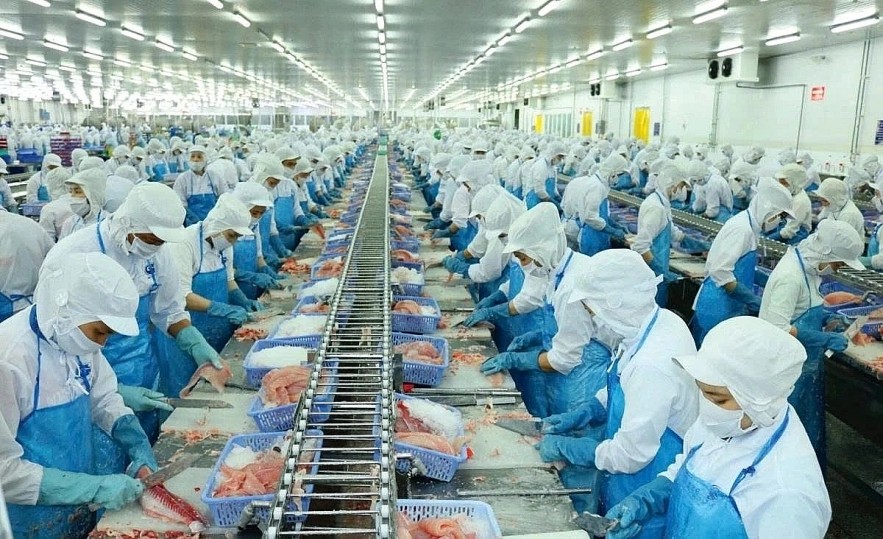 |
| Processing frozen shrimps for export in southern Vietnam. |
High-level dialogues between leaders of both countries continue to uphold the spirit of friendly neighborly, comprehensive cooperation, and mutual development, which is crucial for keeping supply flows stable and uninterrupted.
To maintain its reputation and market access in increasingly demanding markets like the U.S. and EU, Vietnam is taking steps to meet higher standards of traceability, labor practices, and environmental sustainability.
According to Andrea Coppola, Lead Economist at the World Bank in Vietnam, the US - China trade tensions have created positive spillovers for Vietnam’s exports, particularly in electronics and machinery. But to sustain this momentum, Vietnam must ensure it complies with stricter rules of origin and labor standards.
Vietnam is thus aligning its policies and production standards to strengthen long-term trust and avoid potential trade risks, such as anti-dumping investigations or accusations of origin circumvention, so as to maintain the long-term confidence of both major markets.
National Geographic spotlights Vietnam as rising star in Asia
Leading global travel magazine National Geographic Traveller has devoted 20 of its 180 pages to Vietnam in its latest July-August 2025 issue, marking a significant recognition of the country’s growing appeal on the international tourism stage.
In the introductory note on the cover, the editorial team praised Vietnam as “a rising star in Southeast Asia,” highlighting a broad range of tourism experiences from mountain trekking and cultural immersion with ethnic tribes to exploring local beaches and new culinary trends.
The feature begins on page 66 with a striking image of Non Nuoc Cao Bang Geopark, setting the stage for an extensive exploration of the country’s tourism gems.
 |
| Photo: National Geographic Traveller UK |
Through a series of engaging stories, National Geographic Traveller takes readers on a journey to destinations such as Mui Ne (Binh Thuan), Ha Long Bay (Quang Ninh), Hanoi, Ho Chi Minh City, Hoa Binh, and Quang Tri.
Famous local specialties including egg coffee, banh mi, and Mai Chau rice wine are also spotlighted in the issue.
As a world-renowned publication, National Geographic Traveller is known for its captivating storytelling, stunning visuals, and deep insights into destinations, local cultures, cuisine, and nature. Its mission is not only to inspire wanderlust but also to offer readers a vibrant and humanistic perspective of the world.
Vietnam underscores enduring values of UN Charter
Ambassador Do Hung Viet, head of the Vietnamese Permanent Mission to the United Nations, has underlined the historic significance and core values of the UN Charter in Vietnam’s struggle for independence and efforts to defend national sovereignty.
Viet made the statement while addressing the UN General Assembly’s plenary session marking the 80th anniversary of the signing of the UN Charter (1945–2025). The event took place in New York on June 26 (local time) with the participation of the UN Secretary-General, the Presidents of the UN General Assembly, the UN Security Council, the UN Economic and Social Council, the International Court of Justice, and representatives of member states.
He noted that just two months after the Charter was signed in 1945, Vietnam declared its independence. However, the country was forced to endure decades of resistance to defend its right to self-determination and territorial integrity and fight against blatant violations of the Charter.
The ambassador stressed that Vietnam’s experience, along with that of many other nations, demonstrates that the use of force, aggression, and interference in internal affairs ultimately leads to failure, whereas the will of the people and the right to self-determination will always prevail.
He further emphasized that despite the immense pain and loss endured, Vietnam has consistently chosen the path of peace, cooperation, and reconciliation — principles that lie at the heart of the UN Charter. On this occasion, he called on the international community to reflect on the lessons of history, avoid repeating past mistakes, and together make efforts to fully implement the charter in pursuit of a world that is peaceful, just, and sustainably developed for all, reported VNA.
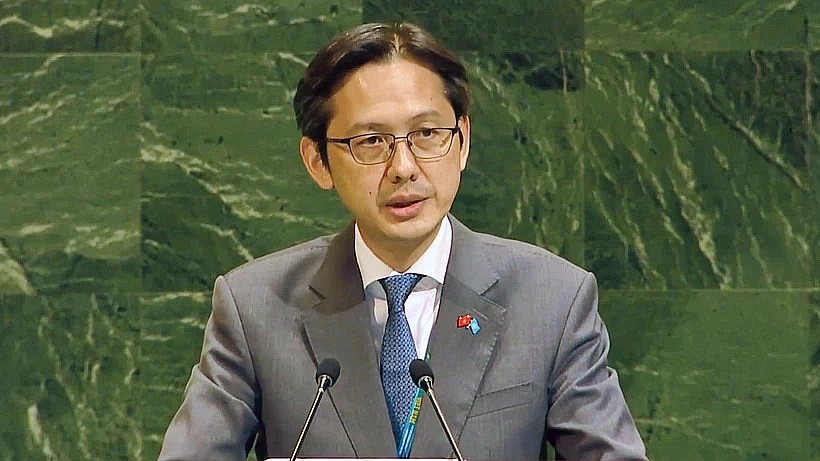 |
| Ambassador Do Hung Viet, head of the Vietnamese Permanent Mission to the United Nations, speaks at the event (Photo: VNA) |
In his remarks, UN Secretary-General António Guterres stated that the principles of the charter are facing serious threats and urged nations to reaffirm their commitment to the Charter and international law for the sake of global peace, justice, and progress.
The Presidents of the General Assembly, the Security Council, and the Economic and Social Council noted that amid mounting conflicts and increasing challenges to multilateralism, the anniversary serves not only as a moment of reflection on the achievements in global cooperation over the past eight decades, but also as an opportunity for member states to advance the Charter’s vision of peace, partnership, and development.
Countries expressed concern over the rise of unilateral actions and breaches of international law, calling on the global community to reaffirm its commitment to the Charter’s principles, particularly sovereign equality, non-interference, and the peaceful settlement of disputes.
As part of the celebration, the original UN Charter, signed in San Francisco in 1945 and preserved by the US National Archives, was brought back to UN Headquarters for the first time in decades. The historic document will be on display until September this year, serving as a powerful symbol of the enduring commitment to multilateralism, peace, and the shared goals of humanity.
Public investment disbursement vital to Vietnam’s 2025 growth
In the current economic climate, speeding up public investment disbursement has been identified as a critical task and a vital engine for recovery and growth.
While many localities have made encouraging progress in the first five months of 2025, others are still plagued by bottlenecks that threaten key project timelines and socio-economic objectives.
Proactive localities drive results
The public investment disbursement outcomes in early 2025 reveal stark contrasts among provinces. Those that have actively addressed challenges are posting strong disbursement rates, advancing major projects. In contrast, others lag behind due to passive attitudes and administrative restructuring.
Leading the country is Phu Tho province, which has disbursed 74.9% of the capital allocated by the Prime Minister.
Treating this as a political priority, the province set up a special task force led by the provincial Chairman to monitor projects closely, accelerate construction, and reallocate funds from slow-moving projects to those with better disbursement potential.
However, Phu Tho still faces challenges such as land clearance delays and rising material costs. Provincial leaders have ordered aggressive action to resolve compensation issues and ensure timely handover of land to contractors.
Thanh Hoa also reported strong results, disbursing 57.8% of its 2025 public investment budget. Key construction sites - such as the Bim Son-Nga Son road and Hoang Hoa-Lach Sung coastal road - are progressing well. Yet, some sections face setbacks due to land clearance and rising costs of sand, stone, and landfill materials.
To resolve these issues, the province launched interagency inspections, cracked down on illegal mineral extraction, and streamlined licensing and bidding for construction material sites, VNN reported.
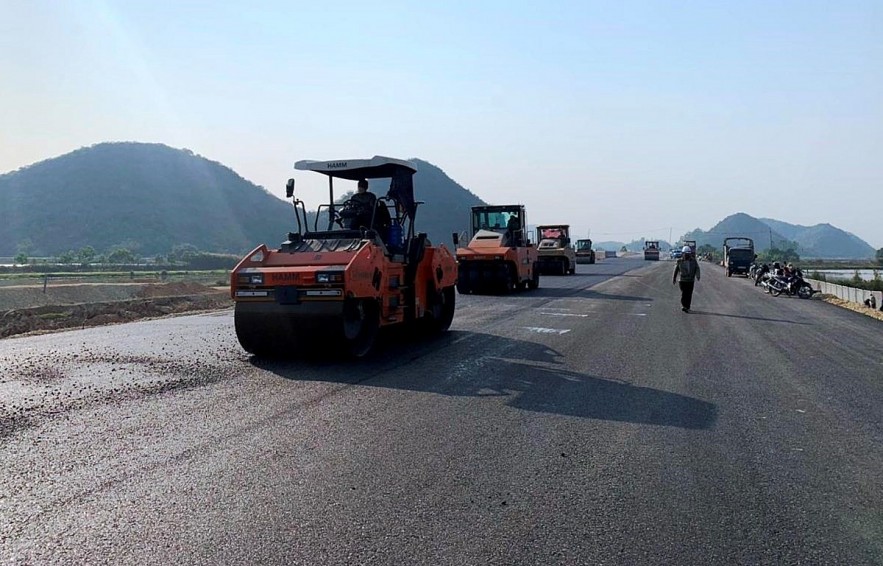 |
| Officials call for stronger leadership and faster land clearance to boost disbursement rates. |
Senior leaders conducted on-site reviews and categorized projects based on capital absorption capacity, ensuring smooth project transfers during administrative mergers.
In Ha Giang, the Tuyen Quang-Ha Giang expressway project is under high-intensity construction with over 360 machines and thousands of workers operating around the clock.
The provincial investment board monitors progress weekly and promptly certifies completed work to release funds.
As a result, VND 635 billion (approx. USD 25 million) has been disbursed this year - 60% of the total construction contract value.
Persistent bottlenecks remain
Conversely, Ho Chi Minh City - the locality with the largest public investment allocation - has only disbursed VND 8.7 trillion (USD 344 million), or 10.2% of its planned budget. Despite a slight improvement from 2024, this falls short of the midyear goal of 30%.
According to Finance Department Director Le Thi Huynh Mai, the main obstacles are delays in land compensation and sluggish action from local authorities.
Some units cite administrative restructuring as a reason for inaction, contributing to poor disbursement results, especially for large-scale projects scheduled for major spending in Q4.
Similarly, Dong Nai province - also with a sizable investment budget - has only disbursed 19% of its VND 16.6 trillion (USD 656 million) allocation as of June 18. Even with a projected rate of 34% by month’s end, this remains below the national average.
Vice Chairman Ho Van Ha admitted this is unacceptable, especially after launching a 45-day campaign to speed up spending. Delays in land clearance have stalled major projects like the Bien Hoa-Vung Tau expressway.
In mountainous Cao Bang province, disbursement stood at just 30.5% by the end of May. Land acquisition, adverse weather, and a lack of building materials continue to hinder progress. Internally, some project managers lack capacity and initiative, while poor coordination between departments causes administrative delays.
With limited time left in the year, localities must act decisively to resolve bottlenecks and eliminate complacency. Achieving full disbursement of the 2025 budget is not only a matter of timelines but also a political responsibility for each province, sector, and department leader.
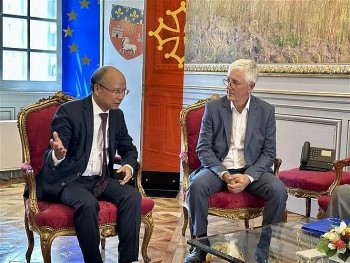 | Vietnam News Today (Jun. 26): Vietnam, France’s Toulouse City Strengthen Multi-faceted Cooperation Vietnam News Today (Jun. 26): Ambassador stresses Vietnam-Cambodia friendship, fruitful economic ties; Vietnam outlines vision for prosperous, sustainable Asian century at WEF meeting; Vietnam, France’s ... |
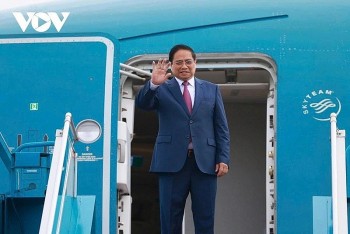 | Vietnam News Today (June 27): PM concludes WEF Tianjin 2025 engagement, working visit to China Vietnam News Today (June 27): Party General Secretary attends NA Standing Committee’s commendation ceremony, Party chief receives Australian Ambassador to Vietnam, PM concludes WEF Tianjin ... |
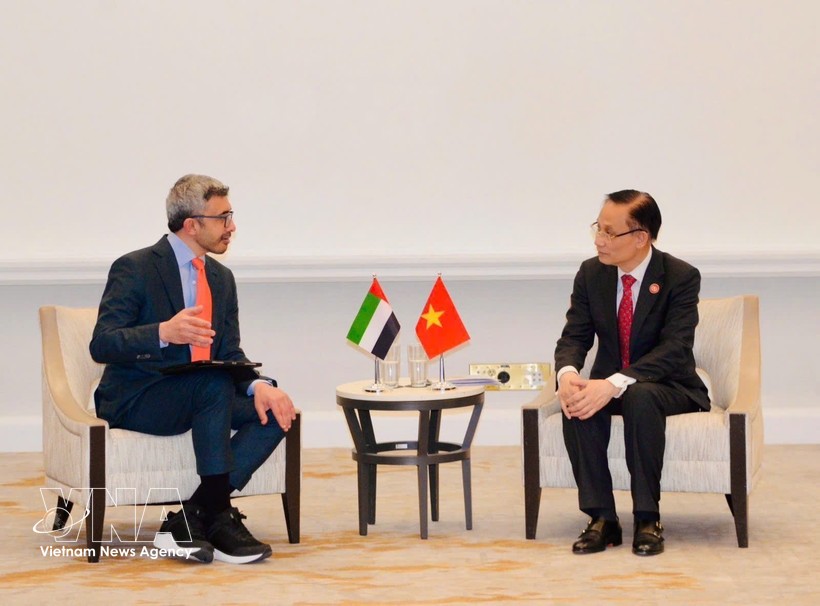 National
National
Vietnam News Today (Feb. 22): Vietnamese FM Meets Counterparts of UAE, Egypt and Türkiye
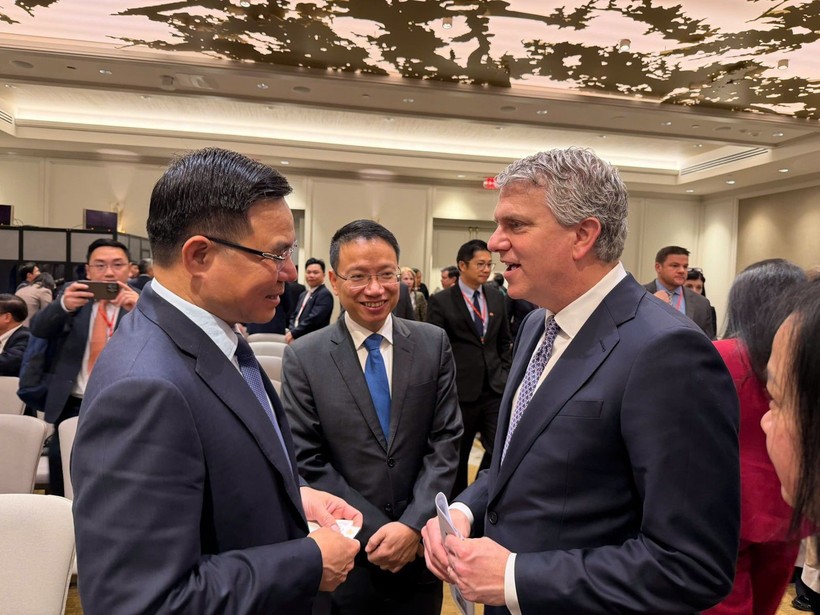 National
National
Vietnam News Today (Feb. 21): Vietnam, US Step Up Dialogue to Facilitate Trade Ties
Recommended
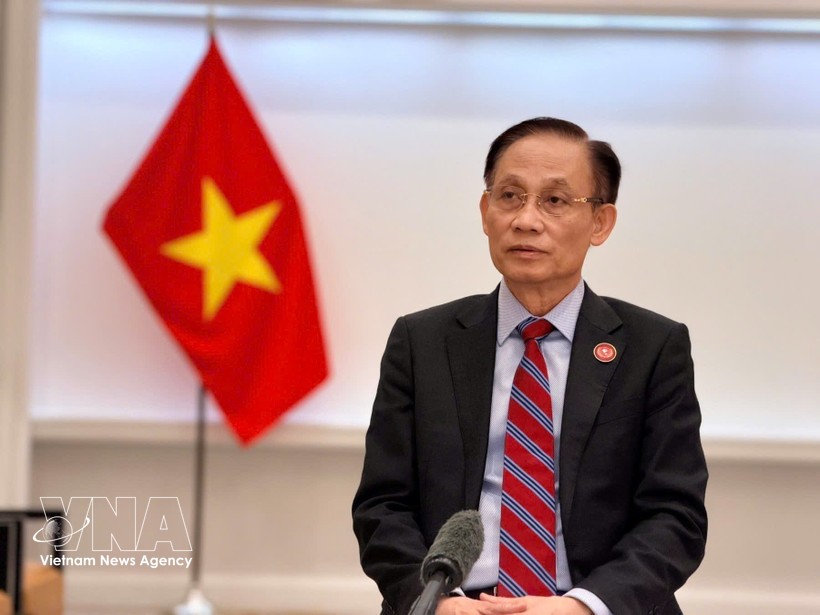 National
National
Party Chief’s US Trip Marks Milestone in High-level Multilateral Diplomacy: FM
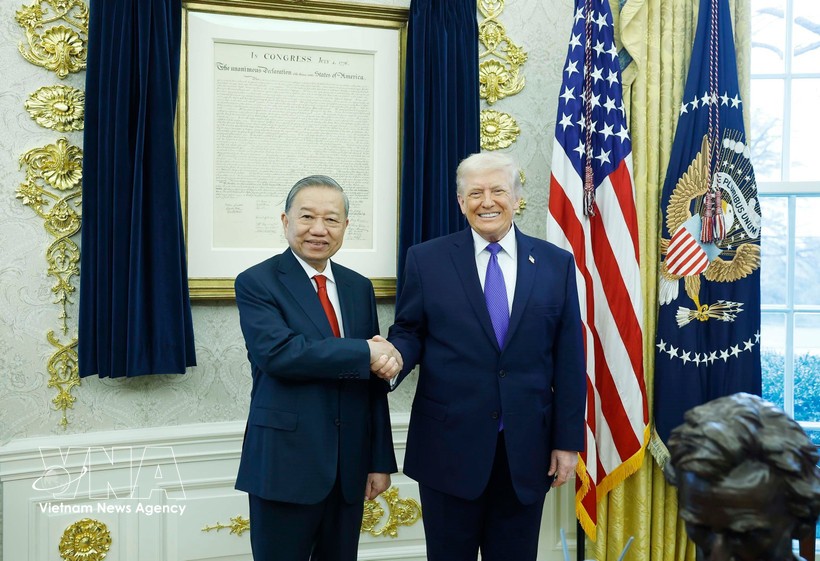 National
National
Party General Secretary To Lam Meets US President Donald Trump at White House
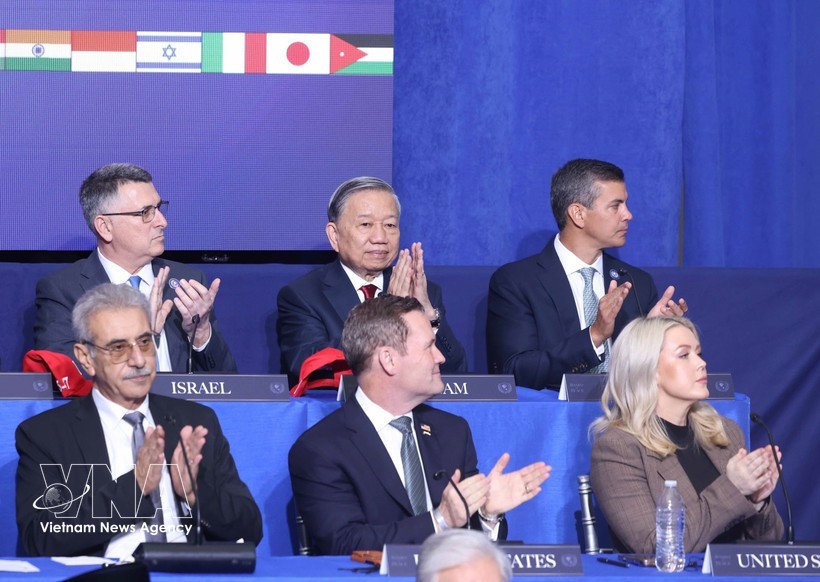 National
National
Party General Secretary To Lam Attends Inaugural Meeting of Gaza Board of Peace in US
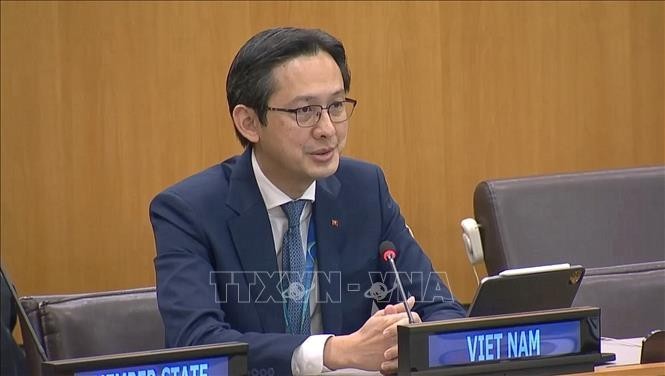 National
National
Vietnam Promotes Multilateral Dialogue on Nuclear Non-proliferation Ahead of the 2026 NPT Review Conference
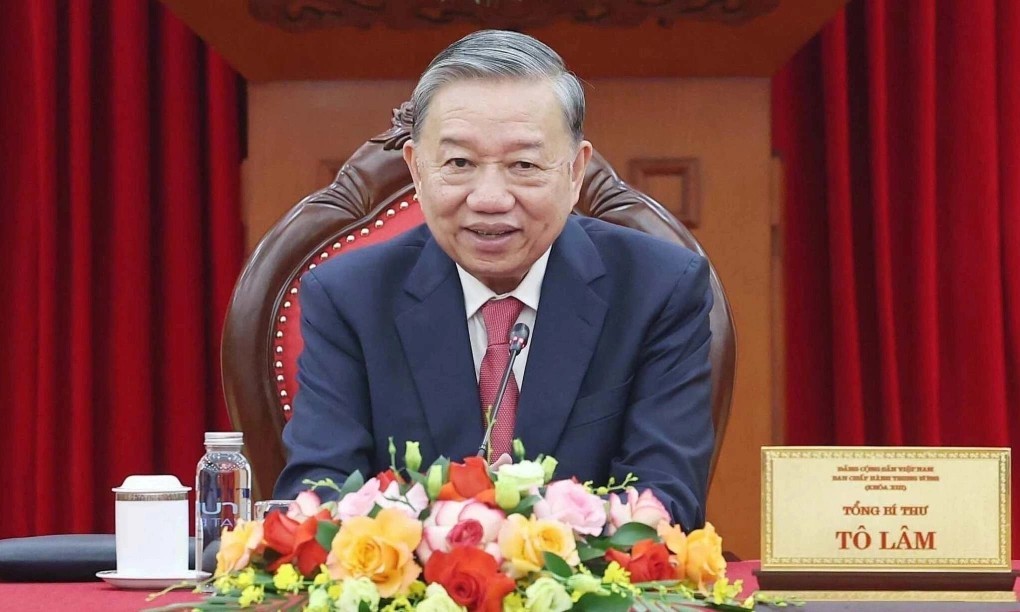 National
National
General Secretary To Lam to Attend Inaugural Meeting of the Gaza Peace Council in the United States
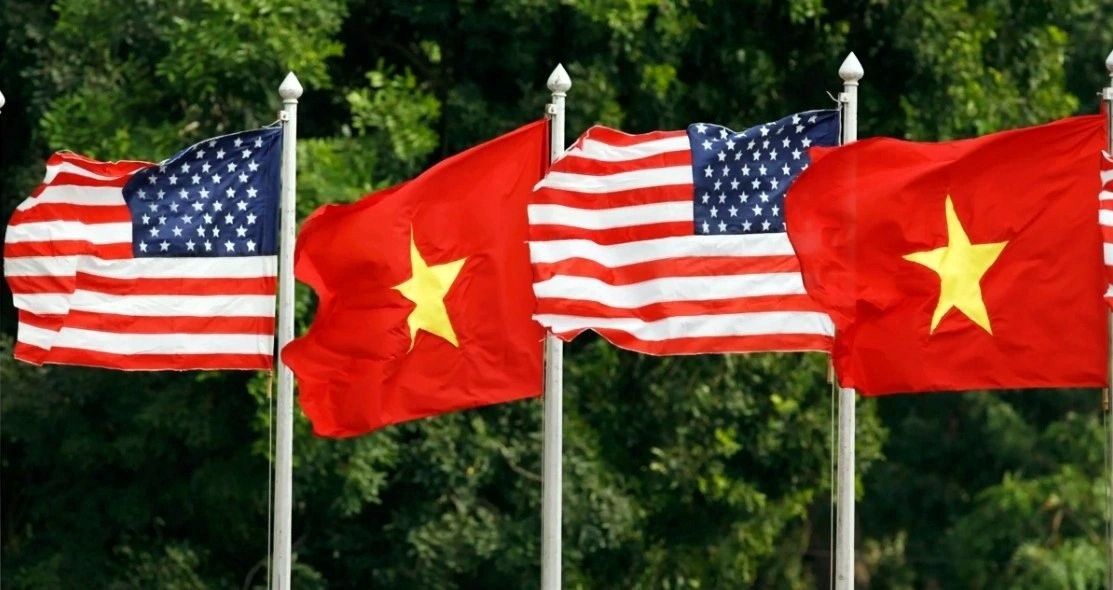 National
National
Vietnam News Today (Feb. 18): Vietnam–US Cooperation: Writing The Next Chapter of Success
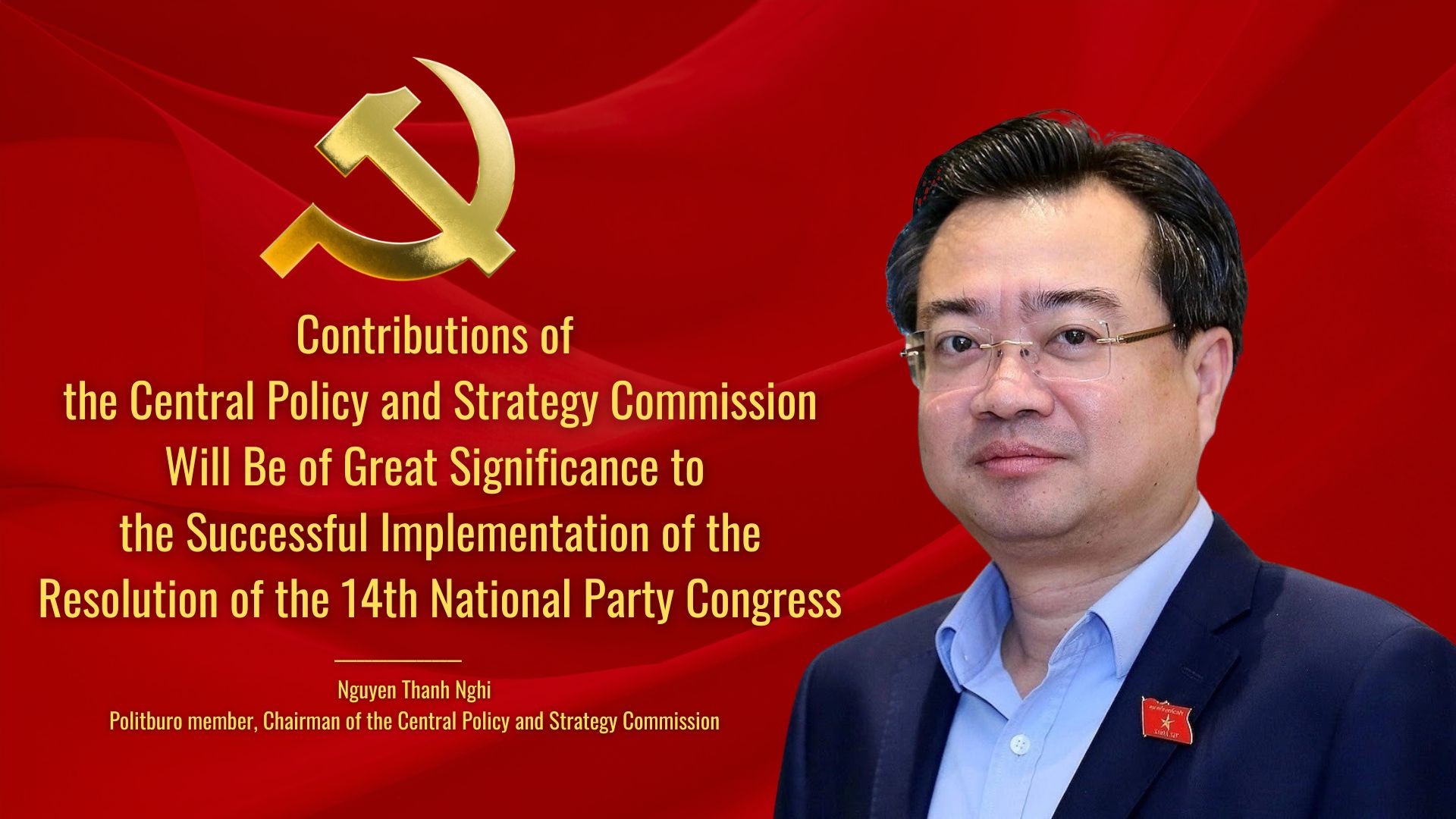 National
National
Contributions of the Central Policy and Strategy Commission Will Be of Great Significance to the Successful Implementation of the Resolution of the 14th National Party Congress
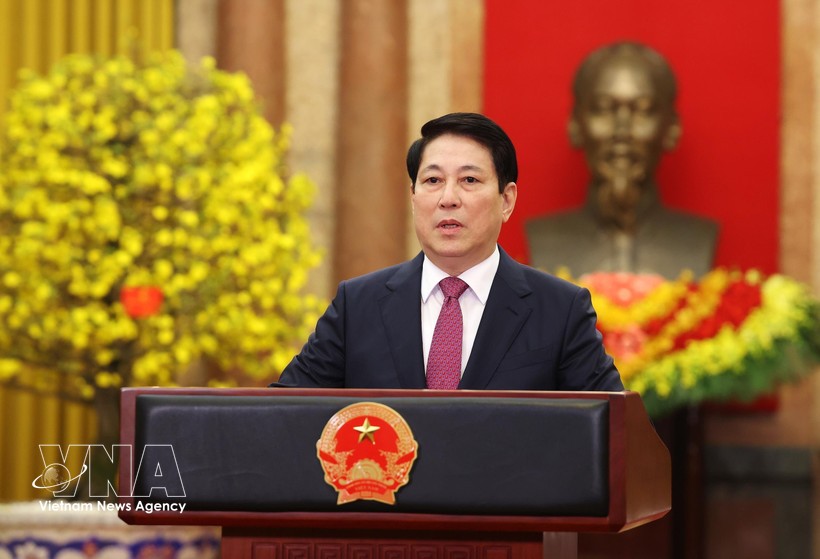 National
National

